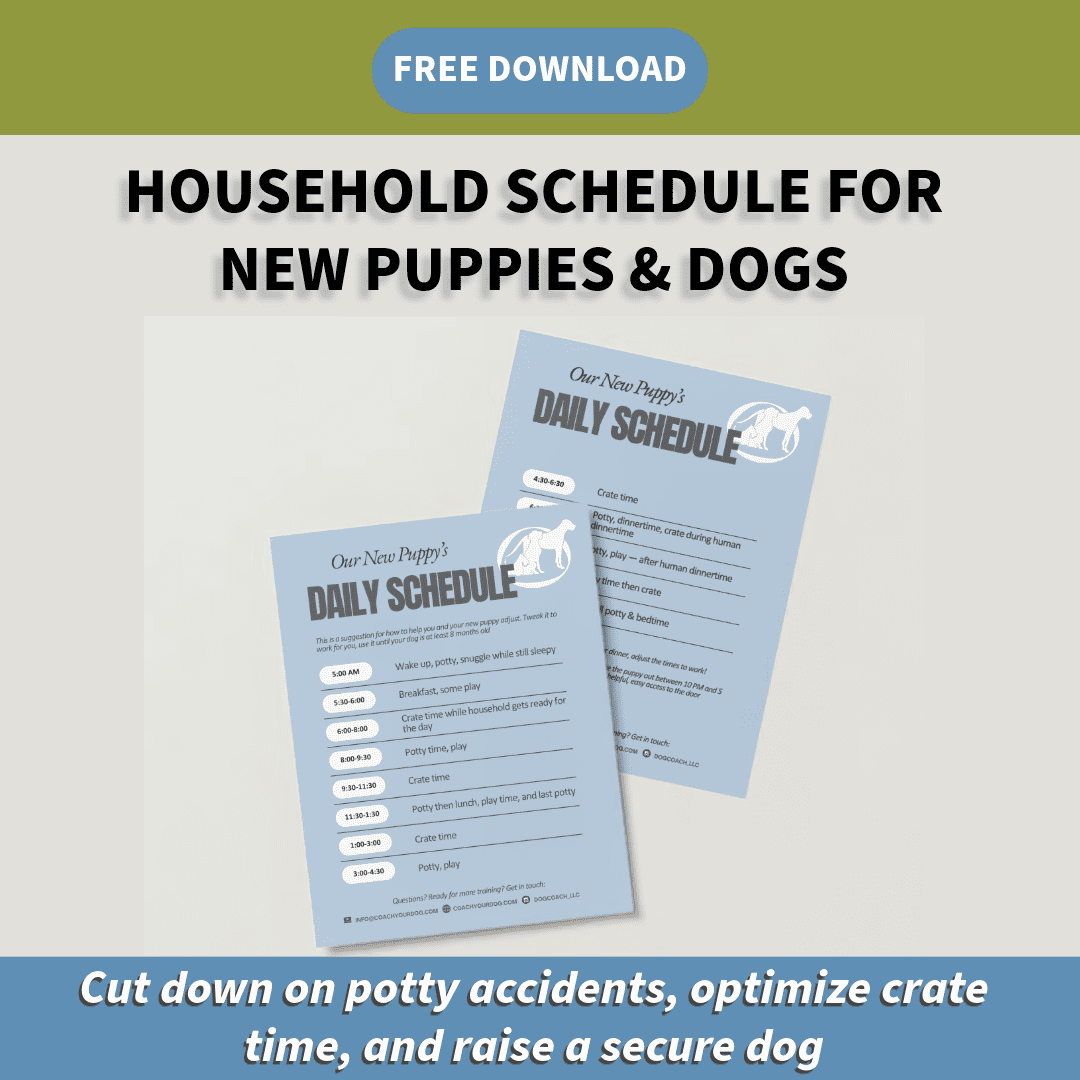Getting a new puppy is a big milestone. Whether you’re a seasoned dog owner or it’s your first dog, these puppy training tips will help get you started. The more time you put in with your puppy now, the quicker success you’ll have getting better behavior in the future. A simple schedule and household routine will go a long way with a new puppy!
Full Crate Training
- Puppies need rest, it’s the safest place for them to be while you have a life and work to manage. Close the door and let them have their quiet crate time. To get your puppy acclimated to a dog crate, start with five minutes (door latched) and increase the time day by day. Put your pup to bed in the crate by 9pm the latest.
To start crate training a puppy, schedule naps in their crate, with the door closed, throughout the day. Our example schedule is a free download to get you started. If you’re starting from scratch, start with a few minutes and work up to an hour-long nap. Read: How to crate train a dog.
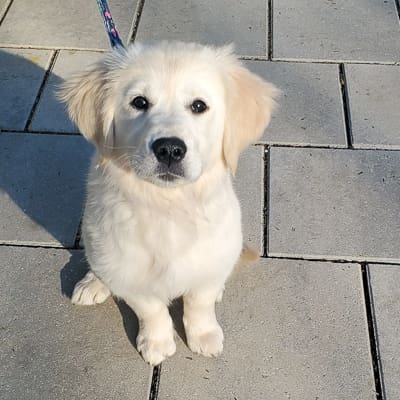
Naps for Your Puppy
- Your puppy’s energy level may be deceiving! We recommend an hour out of the crate, working up to two hours in the crate, then repeat.
- Puppies need upwards of 16 hours of rest per day to allow their bodies to grow. It sounds counter-intuitive but: consistent long naps + early to bed= training for 10 hours of nighttime sleep.
Potty Schedule
- Create a schedule where the puppy is in the dog crate an hour and then an hour out of the crate. When the puppy comes out of the crate, take him directly outside for a potty break. By creating a routine, you can manage potty training and set a rhythm. Schedule crate time, meals, walks, potty breaks, and who’s managing the puppy throughout the day.
Keep the Leash on
- When you’re home and the puppy is out of the crate, keep the leash on in the house, as well as outside, to give you more control. Keep your puppy from having free rein in the house. This cuts down on potty and chewing accidents!
- Pick up the leash to keep the puppy nearby or give guidance to their behavior, especially if they are overly mouthy.
- Read: When and Why to Keep a Leash on in the House
Feeding your Puppy
- Generally, three meals to the breeders’ recommendations is good.
- Do not free feed your dog but teach regular mealtimes. Give your pup 20 minutes to eat, then pick up the bowl. Dogs quickly learn that that’s when the kitchen is open.
- Food has a high value, and feeding offers an excellent time to establish your loving leadership.
- Read: Using Food to Train Your Dog: The Power of Mealtime
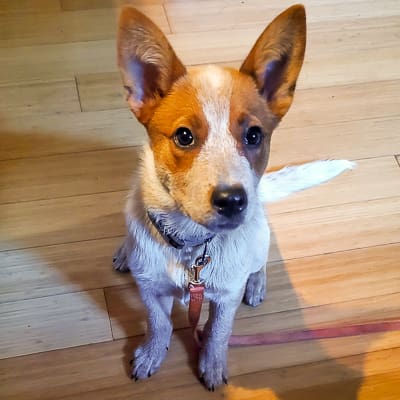
Keep Walks Short
- You may feel your puppy has loads of energy and a long walk is needed but having short walks will be more productive. Less time and distance = higher quality walks.
- Circle the backyard, driveway, or front sidewalk on-leash a few times a day. A potty break near home helps train a good habit.
- Read: Reasons to Keep Puppy Walks Short and Short Walks as a Training Tool
Tips on Toys
- Having the right toys that your puppy can enjoy is key to cutting down on unwanted chewing and biting. Experiment with different textures like rope, leather, wool, and wood.
- Keep toys in baskets and pull them out for playtime to redirect those sharp teeth. Pick up toys after every playtime to help preserve the novelty of the toys. Moderate high-value chew sticks: don’t use them as a default go-to.
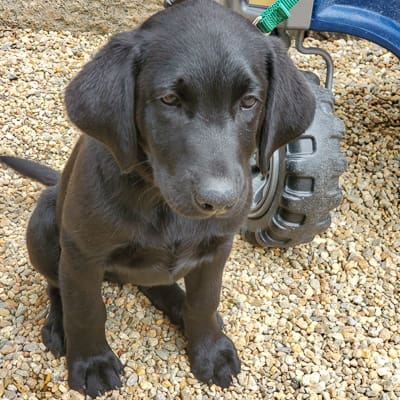
Looking for more training tips and support?
Our In-Person Programs
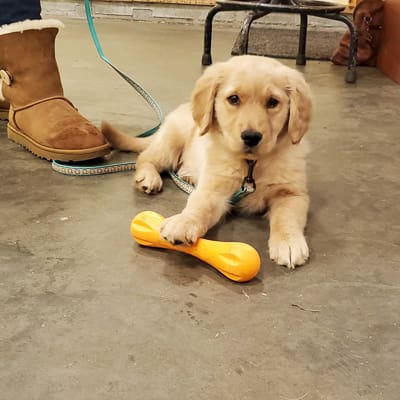
Team Puppy Training
Encourages your leadership and show how you to nurture good behavior.
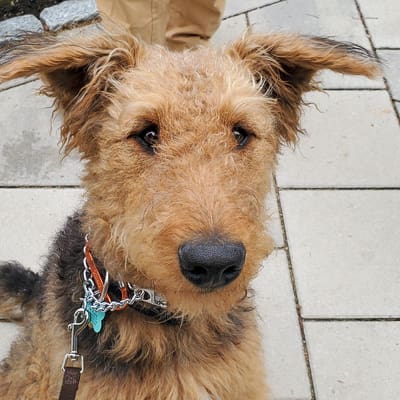
Foundation Training
Covers the basics of good dog behavior as well as some behavior modification.
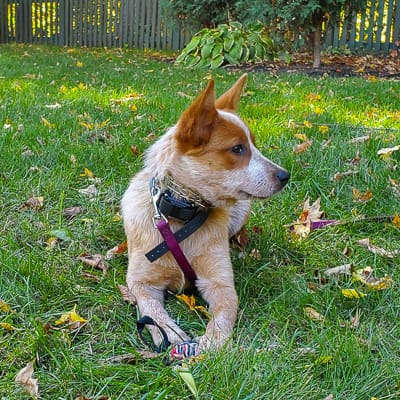
Remote Collar Training
Foundation Training with e-collar for total off-leash freedom and behavior modification.
What our clients have to say...
Dog Coach listened carefully and observed keenly my interaction and tone of voice with Bella. At nearly 6 months now, she is the best-trained dog I've had. It was a worthwhile experience!
We want to thank Dog Coach for your patience and encouragement! Our dogs are really coming into their own as the perfect family dogs we were looking for!
Such a great investment! We got a puppy and had a toddler... It was overwhelming at first. Working with Dog Coach has been the gift that keeps on giving.

